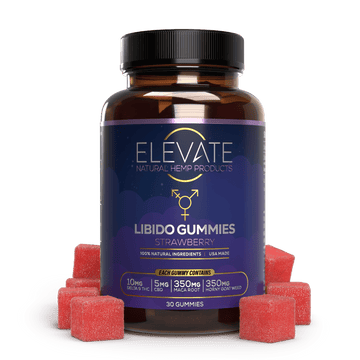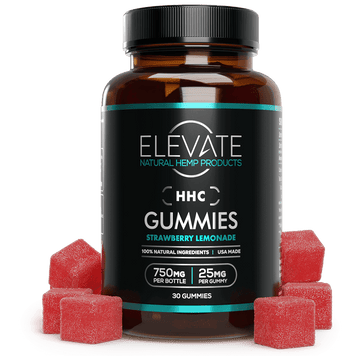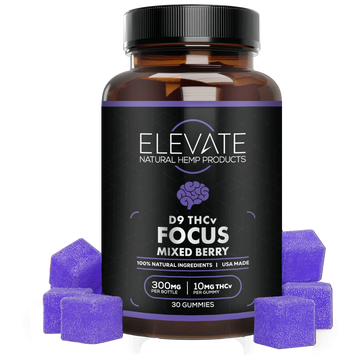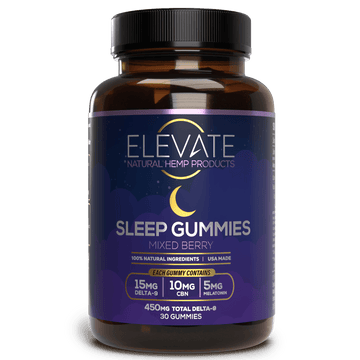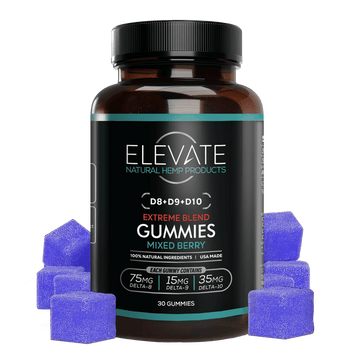What Is THCA Hemp Flower? A Beginner's Guide

What Is THCA Hemp Flower:
THCA flower is raw cannabis that contains non-psychoactive THCA. When heated through smoking or vaping, THCA converts to THC and produces intoxicating effects. It's federally legal when derived from hemp with less than 0.3% Delta 9 THC by dry weight.
Table of Contents
- Key Takeaways
- What Exactly Is THCA Hemp Flower?
- THCA vs. THC: What's the Difference?
- Clearing Up Common THCA Myths
- What Are the Potential Benefits of THCA?
- How to Use THCA Flower
- Is THCA Flower Legal?
- How to Choose Safe, High-Quality Flower
- Buy THCA Flower with Confidence
- Related Articles
- Frequently Asked Questions
You may have noticed THCA flower being sold online and wondered how it’s legally available. The answer lies in its unique chemical structure and the 2018 Farm Bill. This federal law distinguishes legal hemp from marijuana based on Delta-9 THC content, and high-quality THCA flower fits perfectly within that definition. But understanding what is THCA hemp flower goes beyond its legal status. It’s a fascinating cannabinoid that only becomes psychoactive when heated, creating two distinct ways to experience it. This article will explain the key differences between THCA and THC, how to verify a product’s legality, and what to look for in a trustworthy seller.
Key Takeaways
- You Control the Experience with Heat: In its raw form, THCA offers potential wellness benefits without the buzz. If you want the classic psychoactive effects, simply add heat by smoking, vaping, or cooking it to convert it into THC.
- Know the Rules Before You Buy: THCA flower is federally legal, but some states have their own rules, so always check your local laws first. It's also important to know that since your body processes it like THC, it will likely show up on a drug test.
- Always Check for a Lab Report (COA): To ensure your flower is safe and effective, only buy from brands that provide a Certificate of Analysis (COA). This third-party lab report confirms the product is legally compliant and has been tested for potency and purity.
What Exactly Is THCA Hemp Flower?
So, what's all the buzz about THCA hemp flower? Simply put, it's cannabis in its most natural, raw state. The "A" in THCA stands for acid, making it the acidic precursor to the THC we're all more familiar with. In this raw form, it offers a completely different experience because it isn't psychoactive. This unique compound is found in fresh, undried cannabis plants and is the source of some of the plant's most exciting wellness potential. Before it's heated, THCA interacts with your body in a way that’s entirely distinct from traditional THC.
The Science of THCA
Because of its unique molecular structure, THCA doesn't bind to the brain's receptors in the same way THC does, which is why it won't produce a high on its own. Instead, researchers are exploring its potential therapeutic properties. Early clinical evaluations suggest THCA may be useful for alleviating nausea and preventing seizures. Other studies point to its potential to ease pain, making it an exciting compound for wellness. It’s this non-psychoactive potential that has so many people curious about how raw cannabis can fit into their health routines.
How It's Different From Traditional Cannabis
The biggest difference between THCA flower and traditional cannabis is the psychoactive effect—or lack thereof. You can think of THCA as the parent molecule to THC. It only converts into the psychoactive THC when you apply heat through a process called decarboxylation, which happens when you smoke, vape, or bake it. This means raw THCA flower lets you explore the plant's potential benefits without the high. While THCA is known for its potential anti-inflammatory and neuroprotective properties, other cannabinoids like CBD are often used for different reasons, such as managing anxiety. It's all about finding the right compound for your specific wellness goals.
Why It's Gaining Popularity
THCA flower is quickly becoming a favorite for a few key reasons. First, it offers a way to experience the potential wellness benefits of the cannabis plant without the intoxicating effects associated with THC. This is a game-changer for people who want to support their well-being during the day while staying clear-headed. Second, its legal status under the 2018 Farm Bill (as long as it contains less than 0.3% Delta-9 THC) makes it more accessible. As more people seek out natural, plant-based solutions for things like inflammation and nausea, THCA provides a promising and versatile option.
THCA vs. THC: What's the Difference?
Think of THCA and THC like cookie dough and a freshly baked cookie. THCA (Tetrahydrocannabinolic acid) is the raw ingredient found naturally in fresh cannabis plants. It’s the precursor to THC, and on its own, it won’t produce that familiar euphoric feeling. It’s only when you add heat—like baking the cookie dough—that THCA transforms into the well-known psychoactive compound, THC (Delta-9-tetrahydrocannabinol).
This chemical change, called decarboxylation, is the key to understanding the difference. A tiny shift in molecular structure is what separates a non-intoxicating plant compound from the one responsible for the "high" associated with cannabis. So, while THCA flower looks and smells like traditional cannabis, its effects depend entirely on how you use it. Consuming it raw offers one set of potential benefits, while heating it completely changes the experience. This distinction is what makes THCA so interesting and versatile.
Why THCA Isn't Psychoactive (On Its Own)
So, why doesn't raw THCA get you high? It all comes down to its molecular shape. THCA is a natural chemical found in the raw cannabis plant, but its structure is too large to bind effectively with the CB1 receptors in your brain—the receptors responsible for creating a psychoactive effect. Because it can't "fit" into these receptors, THCA itself will not make you feel 'high' or intoxicated. You could eat a fresh cannabis leaf or bud, and while you’d get the potential therapeutic properties of the raw cannabinoid, you wouldn't experience any intoxicating effects. This is the fundamental difference that sets it apart from activated THC.
How Heat Transforms THCA into THC
The magic happens with a little bit of heat. When you light a joint, use a vaporizer, or bake cannabis into edibles, you're starting a process called decarboxylation. This scientific-sounding term simply means that heat removes a carboxyl acid group from the THCA molecule. This small change alters its chemical structure, turning it into THC. Once transformed, the molecule is the right shape to bind with your brain's CB1 receptors, producing the psychoactive effects cannabis is known for. This is why simply eating raw flower won't do much, but smoking or baking it creates a completely different outcome.
How Each Compound Affects Your Body
Once THCA converts to THC, it can produce feelings of euphoria and relaxation. This is the compound responsible for the classic "high" that many people seek for recreational or therapeutic reasons, similar to the effects you might find in products like Delta 9 gummies.
In its raw, unheated form, THCA interacts with your body differently. While it won't cause a high, research suggests it has its own set of potential wellness benefits. Some studies indicate that THCA may have analgesic properties, making it potentially effective for easing pain. Other preliminary research points to its potential to soothe nausea and protect brain health, with some studies suggesting it may even help mitigate memory loss in certain conditions.
Clearing Up Common THCA Myths
As THCA flower grows in popularity, so does the confusion surrounding it. It’s easy to get tangled up in misinformation, especially when you’re just trying to figure out if it’s the right fit for you. Let’s clear the air and tackle some of the most common myths and important facts about THCA. Understanding these points will help you make informed, confident choices on your wellness journey.
Myth: THCA Will Get You High
This is probably the biggest misconception out there. On its own, THCA won't produce that classic "high" you associate with cannabis. In its raw form, the molecule is non-psychoactive. The magic happens with a little heat. When you smoke, vape, or cook THCA, a process called decarboxylation occurs, converting it into the well-known Delta-9 THC. That’s the compound responsible for the euphoric effects. So, if you were to simply eat raw THCA flower, you wouldn't feel intoxicated, but you might still get some of its other potential benefits.
Myth: It's Legal Everywhere
The legal landscape for cannabis products can be tricky, and THCA is no exception. Thanks to the 2018 Farm Bill, hemp-derived products containing less than 0.3% Delta-9 THC are federally legal. Many THCA products fit this description, creating a bit of a legal loophole. However, this doesn't mean it's a free-for-all. State laws vary widely, and some states have specific regulations or bans on THCA. Before you shop for any products, it's always a smart move to check your local laws to make sure you're in the clear.
Fact: It Can Show Up on a Drug Test
Here’s a crucial fact to remember: using THCA flower will likely cause you to fail a drug test. Even though THCA is chemically different from THC before it's heated, standard drug tests aren't looking for the raw compound. They screen for THC metabolites, which are the substances your body produces after consuming THC. Since your body metabolizes both compounds into the same thing, a drug test can't tell the difference. If you have a job that requires regular drug screening, you might want to consider THC-free options like our CBD Gummies instead.
Fact: Quality and Regulation Matter
Because the market for hemp-derived products is still relatively new, it isn't tightly regulated. This means the quality of THCA flower can vary dramatically from one seller to another. Some products might not be tested for purity or potency, leaving you at risk of consuming contaminants or getting an inconsistent dose. That’s why it’s so important to buy from a reputable brand that provides transparent, third-party lab reports (often called a Certificate of Analysis or COA). This ensures the product you’re buying is clean, safe, and exactly what the label says it is.
What Are the Potential Benefits of THCA?
While the buzz around THCA is growing, it’s important to know that the research is still in its early stages. Most of the potential benefits are linked to THCA in its raw, non-heated form. When you don’t apply heat, you can explore what the compound has to offer without the psychoactive effects of THC. This is a huge plus for anyone who wants to experience the wellness properties of cannabis without the high.
Scientists are currently looking into how THCA interacts with our bodies to support well-being. The initial findings are exciting, pointing to a few key areas where this cannabinoid shows real promise. From soothing discomfort to protecting our cells, THCA is proving to be much more than just a precursor to THC. As researchers learn more, we’re getting a clearer picture of how different compounds in the hemp plant, from THCA to CBD, can fit into a balanced wellness routine. Exploring the world of cannabinoids can open up many options for finding what works best for you and your body.
Easing Inflammation
One of the most talked-about potential benefits of THCA is its ability to help with inflammation. Many of us deal with aches and discomfort, and early studies suggest that THCA may have analgesic, or pain-relieving, properties. This is likely tied to its anti-inflammatory effects, which could help soothe the body’s response to injury or chronic irritation. For anyone looking for a natural way to manage everyday soreness or more persistent issues, THCA offers a gentle option. Unlike traditional THC, it provides these potential benefits without altering your state of mind, making it a great choice for daytime use or for those who prefer to keep a clear head while seeking relief.
Protecting Brain Health
The research into THCA’s effect on the brain is especially fascinating. Some studies are exploring its neuroprotective qualities, which means it could help protect brain cells from damage. For instance, one study suggested that THCA may help mitigate memory loss and other changes in the brain. While this research is still developing, it points toward THCA’s potential role in supporting long-term cognitive health. This is a promising field for anyone interested in proactive ways to care for their brain. As we learn more, THCA could become a key player in wellness routines focused on maintaining mental sharpness and resilience over time.
Soothing Nausea
Feeling nauseous can completely derail your day, and finding effective relief is a top priority. Clinical evaluations have indicated that THCA may be helpful in alleviating nausea. This is a property shared by other cannabinoids, but THCA’s non-psychoactive nature makes it a uniquely appealing option. It offers the potential to calm your stomach without causing a high, which is ideal when you need to stay functional and focused. For those who experience occasional queasiness or are looking for gentle digestive support, THCA presents a promising, plant-based alternative that works with your body’s natural systems.
What the Latest Research Says
To put it all together, the latest research paints THCA as a versatile cannabinoid with significant therapeutic potential. Its primary areas of interest are its anti-inflammatory and neuroprotective properties. Unlike other compounds, such as the THC in our Delta 9 gummies, THCA doesn’t produce a high, allowing you to tap into its benefits while staying clear-headed. It stands apart from other non-psychoactive cannabinoids as well; for example, while many people use CBD gummies for anxiety or relaxation, THCA’s strengths appear to lie more in physical relief and cellular health. As the science continues to evolve, we’ll gain an even deeper understanding of how to best use THCA for wellness.
How to Use THCA Flower
Once you have your THCA flower, you might wonder what to do with it. The great thing about THCA is its versatility—how you use it completely changes the experience. The key is heat. Applying heat through a process called decarboxylation converts the non-psychoactive THCA into the psychoactive THC you’re more familiar with. If you skip the heat, you can access the potential benefits of THCA in its raw form.
Whether you’re looking for the classic effects of THC or the wellness potential of raw cannabinoids, there’s a method that fits your goals. You can smoke it, vape it, cook with it, or even apply it to your skin. Let’s walk through the most common ways to use THCA flower so you can find the perfect fit for your routine. Each method offers a unique set of effects and benefits, giving you control over your cannabis experience.
Smoking the Flower
Smoking is the most direct way to convert THCA into THC and feel its effects almost instantly. When you light the flower, the heat immediately triggers decarboxylation. You can smoke THCA flower just like you would traditional cannabis—by grinding it up and packing it into a bowl, a bong, or rolling it into a joint. This method is popular because it’s straightforward and the effects are fast-acting.
Because smoking delivers activated THC, many people use it for immediate relief. Some research suggests that THCA may have pain-relieving properties, making it a go-to for those looking to manage discomfort. If you’re looking for a wide selection of products, you can shop all of our collections to find what works for you.
Vaping for a Smoother Experience
If smoking feels a bit harsh on your lungs, vaping is an excellent alternative. Using a dry herb vaporizer, you can heat the THCA flower to a precise temperature that’s hot enough to convert it to THC but not hot enough to combust. This process creates a vapor instead of smoke, which is often smoother and more flavorful. It also gives you more control over your experience, as you can adjust the temperature to target different effects.
Vaping offers the same fast-acting effects as smoking, making it great for immediate needs. Clinical evaluations have also pointed to THCA’s potential for alleviating nausea, which makes vaping a gentle option for sensitive users.
Making Edibles and Tinctures
Creating your own edibles or tinctures with THCA flower opens up a world of possibilities. If you want psychoactive effects, you’ll need to decarboxylate the flower first by baking it at a low temperature. Once it’s activated, you can infuse the flower into butter or oil to make anything from brownies to salad dressing. The effects of edibles take longer to kick in but are much more potent and long-lasting.
Alternatively, you can harness THCA’s raw benefits by infusing it into oil or alcohol without heat. This preserves the THCA in its non-psychoactive state. Since THCA is known for its potential anti-inflammatory and neuroprotective benefits, raw infusions are a great way to support overall wellness. If you prefer ready-made options, you can explore products like Delta 9 gummies.
Applying It Topically
For targeted, localized relief without any psychoactive effects, you can use THCA flower to create your own topicals. By infusing raw, unheated flower into a carrier like coconut oil or shea butter, you can make a soothing salve or cream. Because the THCA isn’t heated, it doesn’t convert to THC and won’t enter your bloodstream, meaning it won’t cause a high. You can apply the topical directly to sore muscles, joints, or irritated skin for focused relief.
This method is ideal for anyone who wants the plant’s benefits without the buzz. Some studies even suggest that cannabinoids like THCA may have neuroprotective effects that help with memory, making topicals an interesting avenue for wellness.
Is THCA Flower Legal?
The legality of THCA flower is a great question, and the answer isn't a simple yes or no. It really comes down to where you live and how the laws distinguish between hemp and marijuana. Federally, THCA flower sits in a legal space, but state laws can change the picture. Let's walk through exactly what you need to know to stay informed and purchase with peace of mind.
The 2018 Farm Bill and Federal Law
The main reason you can buy THCA flower online is because of the 2018 Farm Bill. This federal law created a legal distinction between hemp and marijuana based on one specific cannabinoid: Delta-9 THC. According to the bill, any cannabis plant with 0.3% or less Delta-9 THC by dry weight is considered legal hemp.
Since THCA is not Delta-9 THC in its raw form, flower that is rich in THCA but low in Delta-9 THC fits the federal definition of hemp. This is the key that allows quality THCA flower to be legally produced and sold in the United States under federal law.
Navigating State-by-State Differences
While federal law sets a baseline, it isn't the final word. Cannabis laws can vary significantly from one state to another. Some states have adopted the federal government's definition of hemp without any changes, making THCA flower accessible. However, other states have passed their own, stricter laws.
These states might regulate products based on their "total THC" content, which calculates the potential Delta-9 THC that THCA converts into when heated. Because of this, it's incredibly important to check your local regulations before making a purchase. A quick search for your state's hemp laws will give you the clarity you need to know what's allowed in your area.
How Lab Testing Confirms Legality
So, how can you be sure the flower you're buying actually meets the legal standard? This is where lab reports are essential. Any reputable seller will provide a Certificate of Analysis (COA) from an independent, third-party lab for all of their products. This document is your proof of what's inside the package.
When you look at a COA for THCA flower, find the Delta-9 THC percentage. To be federally compliant, it must be at or below 0.3%. Trustworthy brands make these reports easy to find on their product pages. It’s a major green flag that shows a company is committed to transparency and quality, allowing you to shop for products with confidence.
How to Choose Safe, High-Quality Flower
Shopping for THCA flower should be an exciting experience, but it's also smart to be a discerning customer. Because the market isn't always consistent, a little bit of know-how can make all the difference in finding a product that’s both safe and effective. Taking a few extra minutes to check for quality indicators will ensure you have the best possible experience. Think of it as becoming your own cannabis connoisseur—it’s empowering to know exactly what you’re buying. Here are four straightforward steps you can take to feel confident in your purchase.
Read a Certificate of Analysis (COA)
Before you add any THCA flower to your cart, look for its Certificate of Analysis, or COA. This is simply a lab report from a third-party source that verifies what’s inside the product. Any trustworthy seller will have these readily available on their website. The COA is your proof that the product is compliant with the law, confirming that the delta-9 THC level is at or below the federal limit of 0.3%. It also shows the THCA percentage, so you know what you’re getting. More importantly, a comprehensive COA will test for harmful contaminants like pesticides, heavy metals, and mold, giving you peace of mind about what you're consuming.
Understand Potential Side Effects
While raw THCA won't produce a high, it’s still a good idea to know how it might affect your body. Some people can experience mild side effects, especially when trying it for the first time. These can include an upset stomach, nausea, or skin reactions like itching or a rash. As with any new supplement or wellness product, the best approach is to start with a small amount and see how you feel. This allows you to gauge your body’s unique response and find the right amount for you. Remember that even though it's non-intoxicating in its raw state, THCA can still show up on a drug test.
Check for Medication Interactions
This step is incredibly important if you take any prescription medications or have underlying health conditions. Like many plant-based compounds, THCA has the potential to interact with certain drugs. These adverse reactions can change how your medication works, so it’s a conversation worth having with a professional. Before you try THCA flower, make it a point to speak with your doctor or a pharmacist. They can give you personalized advice based on your health history and current medications, ensuring you can safely incorporate THCA into your routine without any unwanted surprises. Your health and safety should always come first.
Store Your Flower for Freshness
Once you have your high-quality THCA flower, you’ll want to keep it that way. Proper storage is key to preserving its freshness, potency, and flavor profile. The best way to do this is to keep your flower in an airtight container, like a glass jar, and store it in a cool, dark place. Exposure to light, heat, and air can degrade the cannabinoids and terpenes over time, diminishing the flower’s quality. Storing it correctly also prevents the THCA from slowly converting into THC. And, of course, always make sure to store your products safely and securely, well out of the reach of children and pets.
Buy THCA Flower with Confidence
Shopping for THCA flower should feel exciting, not overwhelming. Once you know what to look for, you can easily tell the difference between a premium product and one you should skip. It all comes down to spotting a few key signs of quality and knowing how to find a seller you can trust. Let’s walk through how to be a smart, confident shopper.
Signs of a Great Product
High-quality THCA flower is a treat for the senses. Look for buds that are vibrant green, maybe with hints of purple or orange, and covered in a frosty layer of tiny crystals called trichomes. A strong, pleasant aroma is another great sign—if it smells earthy, sweet, or citrusy, you’re on the right track. Beyond looks and smell, a great product comes from a plant grown with care. This quality is important because studies suggest THCA has potential anti-inflammatory and neuroprotective benefits. When you invest in well-cultivated flower, you’re getting a product designed to deliver the best possible experience.
Red Flags to Watch Out For
Because many THCA products sold online aren't government-regulated, it's up to you to be discerning. The biggest red flag is a seller that doesn’t provide third-party lab test results, also known as a Certificate of Analysis (COA). Without it, you have no way of knowing what’s actually in the product. Untested flower could contain harmful contaminants like pesticides, heavy metals, or mold. Be wary of prices that seem too good to be true, as this can indicate low-quality sourcing. Vague product descriptions and a lack of customer reviews are other signs that you should probably shop for your products elsewhere.
Find a Reputable Seller
A trustworthy seller makes it easy for you to feel confident in your purchase. The number one thing to look for is transparency, starting with readily available third-party lab reports for every product. A reputable brand will also be open about where its hemp comes from and how it’s grown. Spend some time reading customer reviews to get a sense of other people’s experiences with both the products and the company’s service. Finally, while THCA is federally legal under the 2018 Farm Bill, state laws can vary. A good seller will be clear about where they can and cannot ship.
What to Expect on the Price Tag
When it comes to THCA flower, price often reflects quality. Cheaper options might be tempting, but they could be cutting corners on testing and safety. A fair price point usually accounts for rigorous third-party testing, high-quality cultivation, and legal compliance. To be sold legally online, THCA flower must contain less than 0.3% Delta-9 THC. The total cannabinoid content, however, can be quite high, often ranging from 20% to 30%. This potency is what you’re paying for. Expect to pay a bit more for specialty strains or organically grown flower, but that extra cost buys you peace of mind and a better product.
Related Articles
Frequently Asked Questions
So, will THCA flower actually get me high? The answer depends entirely on how you use it. In its raw, natural state, THCA is non-psychoactive, meaning it won't produce a "high." The intoxicating effects only happen when you apply heat through smoking, vaping, or baking. This process, called decarboxylation, chemically changes THCA into the familiar THC. So, if you're looking for a wellness experience without the buzz, you can use it raw. If you want the classic cannabis effects, just add heat.
Is it legal for me to buy THCA flower where I live? Federally, THCA flower is legal under the 2018 Farm Bill as long as it contains less than 0.3% Delta-9 THC. However, state laws can be much more specific and sometimes stricter. Some states have regulations based on "total THC," which includes the potential THC that THCA converts into. Because the legal landscape varies so much, it's always best to check your local state laws before making a purchase to ensure you're in the clear.
Will I fail a drug test if I use THCA flower? Yes, it's very likely that using THCA flower will result in a failed drug test. Standard drug screenings don't test for raw THCA; they test for THC metabolites, which are the compounds your body creates after processing THC. Since your body metabolizes THCA into the same substances as THC, a test cannot distinguish between the two. If you are subject to drug testing, you should avoid THCA products.
What's the best way to use THCA for wellness without the psychoactive effects? To tap into the potential benefits of THCA without the high, you need to avoid heating it. One of the easiest ways to do this is by adding a small amount of the raw, ground flower into a smoothie or juice. You can also create your own unheated infusions by steeping the flower in a carrier oil to make tinctures or topicals. This preserves the THCA in its original, non-intoxicating form.
How is THCA different from CBD if they're both non-psychoactive? While both THCA and CBD are non-psychoactive cannabinoids found in the cannabis plant, they are distinct compounds with different potential benefits. People often turn to CBD for help with anxiety, stress, and general relaxation. The research on THCA, while still early, points more toward its potential anti-inflammatory, neuroprotective, and anti-nausea properties. Think of them as different tools in a wellness toolkit, each suited for different needs.
Join Our Newsletter
Sign up to be the first to know about our can't-miss product drops, special VIP offers & exclusive discounts.

